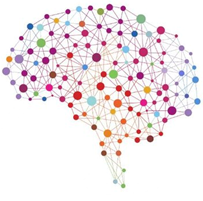Category: Uncategorised
-
11th of December: Jane Aspell
Title: The Bodily Self in Pain: The Role of Interoceptive Processing Abstract: Previous research suggests that the processing of internal body sensations (interoception) affects how we experience pain. Some evidence suggests that people with fibromyalgia syndrome (FMS) – a condition characterised by chronic pain and fatigue – may have altered interoceptive processing, but findings to…
-
13th of November: Flavia Mancini
Title: Learning, Predicting and Modulating Pain Abstract: Pain is a dynamic experience, which varies over time. This talk explores how the brain uses Bayesian inference and confidence to learn to predict pain based on its statistical regularities, and uses these inferences to modulate pain perception. In chronic pain, these predictive and learning mechanisms may be…
-
23rd of October: Oliver Vikbladh
Title: Consolidation of Sequential Planning Abstract: Thriving in changing environments requires the capacity to evaluate novel courses of action. This ability is hypothesized to depend on sequential planning via step-by-step simulations of the future, using cognitive maps or schemas of task contingencies. However, it is still unclear if, how and where in the brain such…
-
26 June: Lisa Thackeray
Talk title: Exploring an alternative phenomenological representation: the challenge of thematising idiographic data. Abstract My PhD research focused on the lived experience of families of developmentally disabled young adults. First, I spoke to five mothers, then five fathers and finally five siblings; all were sisters. As part of Jonathan Smith’s IPA Research Group, I analysed…
-
19 June: Tengfei wang
Talk title: A novel approach to measuring executive functions in typical and atypical developing young children Abstract Executive function refers to the goal-oriented ability to monitor and manage various cognitive processes, including inhibitory control, working memory and switching. It has an important impact on children’s learning, reasoning and social development. It has been theorized that…
-
29 May: Rebecca Brewer
Talk title: Knowing me, knowing you: Is one’s own interoception related to the recognition of others’ interoceptive states? Abstract While the recognition of others’ emotional states has been the focus of much research, very little work has examined the recognition of others’ interoceptive states (e.g. identifying when others feel tired, nauseated, hungry, etc.). It is…
-
8 May: Neil Roach
Talk title: Inferring perceptual states from fixational eye movements Abstract Even when we attempt to maintain steady fixation on an object, our eyes drift and we make small ballistic movements called microsaccades. Although we are seldom aware of these fixational eye movements, it is becoming increasingly clear that they can provide a window onto perceptual…
-
15 May: Anna Franklin
Talk title: The Development of Colour Perception Abstract Colour is a pervasive feature of our perceptual experience and has a role in many aspects of mind and behaviour. For example: colour enables us to recognise scenes and objects and tells us about their properties; changes in skin colour tell us about a person’s health; we…
-
24 April: Duncan Astle
Talk title: A transdiagnostic approach to neurodevelopment Abstract Macroscopic brain organisation emerges early in life, even prenatally, and continues to change through adolescence and into early adulthood. The emergence and continual refinement of large-scale brain networks, connecting neuronal populations across anatomical distance, allows for increasing functional integration and specialisation. But this gradual process of network emergence…
-
13 March: Danaja Rutar
Talk title: Predictive processing: theoretical tools for higher cognitionPredictive processing (PP) is increasingly influential as a unifying model of perception, action, and cognition (Clark, 2013). Whilst highly successful in perceptual and motor domain, it is not clear how higher cognition, thought, and concept formation should be understood within this framework. This is not surprising since PP…

